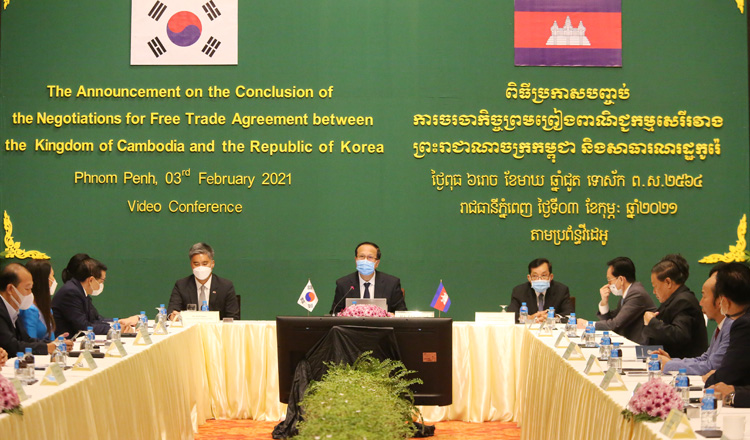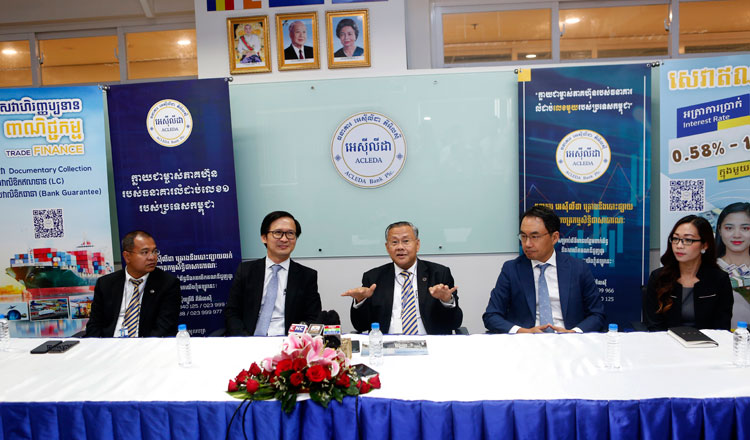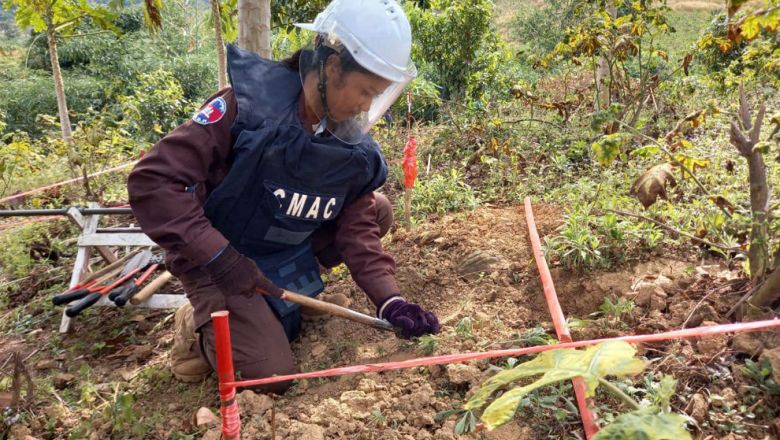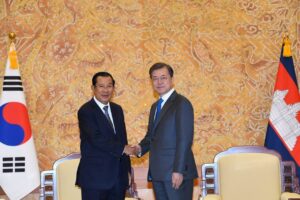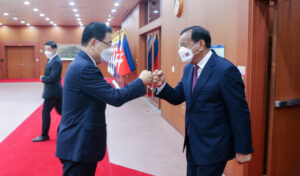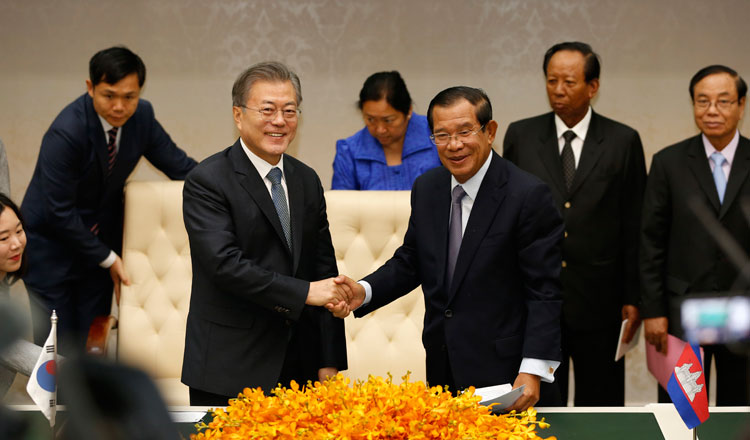The next step: Cambodia’s historic trade agreement with South Korea
The Cambodia-Korea free trade agreement (CKFTA) is expected to be signed by mid-2021 after both countries announced the conclusion of negotiations on the deal yesterday.
This momentous achievement was first initiated by Prime Minister Hun Sen during a state visit by Moon Jae-in, president of the Republic of Korea to Cambodia, in March 2019.
Following instructions from both leaders, a joint feasibility study of a bilateral free trade agreement (FTA) was officially launched in Busan, South Korea, on Nov 25, 2019.
The CKFTA aims to strengthen the economic partnership and further liberalise bilateral trade between the two economies and create both economic and social benefits for the people and businesses of both countries.
Furthermore, the two nation believe that this important bilateral agreement can help facilitate a swift economic recovery for the two countries during and after the COVID-19 pandemic.
Minister of Commerce Pan Sorasak said both countries will now prepare to complete all necessary domestic procedures toward the signing of the agreement – tentatively targeted for the middle of 2021.

He said that this is the second free trade deal that Cambodia has completed with a more economically developed country. The FTA with China, officially designated a developing country despite being the world’s second-biggest economy, was the first. Cambodia is classified as a least-developed country.
Sorasak added that the CKFTA will further expand market liberalisation between the two countries beyond the existing ASEAN-Korea FTA and the recently signed Regional Comprehensive Economic Partnership (RCEP).
It will enhance Cambodian exports to the Republic of Korea including, but not limited to, garments and textiles, footwear, travel bags, spare parts, electronic equipment, rubber and agricultural products. As for the Republic of Korea, the FTA will further improve its exports to Cambodia including, but not limited to, automobiles, electronics, appliances, beverages, pharmaceuticals, and plastic products.
“We can export cashew nuts, peppers, mangoes and processed products. We want to push our country to be an industrial-based sector not just a supplier of raw materials, which lack a high added-value,” Sorasak added.
“We believe the agreement will come into force this year once the National Assembly, Senate and the King stamp the agreement,” he added. “We believe that bilateral trade between the two countries will be up by 25 percent year-on-year. Bilateral trade between the two countries would then reach more than $1 billion,” said Sorasak.
According to figures from the Korean International Trade Association, bilateral trade between Cambodia and South Korea was valued at $884 million as of December 2020, a year-on-year decrease of 14 percent.
From January to December 2020, Cambodia exported $317 million of products to South Korea, a decline of 18 percent from 2019. Over the same period, the Kingdom imported $567 million of goods from South Korea, a slide down of 5 percent year-on-year.
He added that the CKFTA took around two years to conclude. The comparative speed was down to the fact that the negotiating working groups had experience gained from drawing up the Cambodia-China FTA negotiations – and its fast tracking by both countries.
Cambodia Rice Federation President Song Saran welcomed the move. He added that the CKFTA will be very beneficial for the Kingdom. He said that Cambodia has potential to export tax-free agricultural products, namely mango, rubber, cashew nuts, rice, among others.
“South Korea normally offers a tariff rate quota (TRQ) system to some countries for the exporting of rice to it, so we have hopes Cambodia may be able to do the same soon,” he said.
“We exported around 20 tonnes of milled rice last year to South Korea, but the tariff rate was 400 percent. Therefore, with this agreement we hope we can negotiate successfully to facilitate the import of more rice from Cambodia at a lower tariff,” Saran added.
He said that South Korea imports about 500,000 tonnes of milled rice per year from other countries. They have a TRQ with the US, Australia, Vietnam and China.
“We are trying to find solutions to that will reduce the tariff rate. The South Korean market prefers and the japonica rice variety, so we will work with agriculture cooperatives to target this,” added Saran.
Saran also noted that South Korea is a big market because of its status as a developed country. Therefore, with this FTA, Cambodia also hopes to attract Korean investors to Cambodia to expand the Kingdom’s technology, electronics, processing and spare parts production sectors. The Kingdom also has wider export potential in the textile and garment industries.
According to the Ministry of Commerce, this bilateral FTA includes standards, technical regulations and conformity assessment procedures, sanitary and phyto-sanitary measures, along with trade remedies, rules of origin, customs procedures and trade facilitation, economic cooperation, transparency, dispute settlement, exceptions, institutional arrangements and final provisions.
The Ambassador of Cambodia to the Republic of Korea Long Dimanche welcomed the achievement. He added: “We are now working to open more markets and trade for Cambodia internationally, especially in South Korea. We will work with groups of investors , traders and business and investment associations in South Korea by offering consultations when they seek to make investments in the Kingdom. We can also provide support and facilitation and the latest information about Cambodia to investors and business people in South Korea.”
He said this work will require greater cooperation and more economic diplomacy than ever before as the world, and Cambodia and South Korea in particular, work to move beyond the affects of the COVID-19 pandemic. Khmer Times

